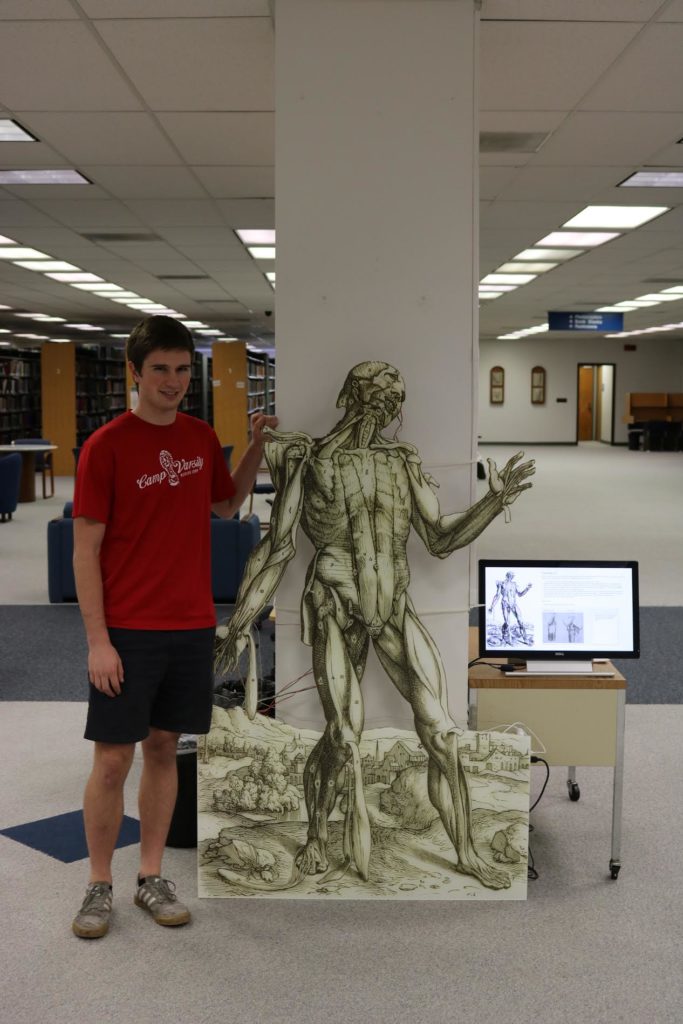By Philip Montgomery
Head of the McGovern Historical Center
The Electronic Vesalius project has come to the TMC Library. The e-Vesalius is a digital facsimile of Andreas Vesalius’ De Humani Corporis Fabrica, a landmark text of Renaissance anatomy that has been credited with inaugurating Western internal medicine.
The e-Vesalius is touch sensitive. Touching the symbols on the body brings up anatomical images and text from assorted historical anatomical texts.

This is a joint project, almost one year in the making, between the TMC Library’s McGovern Historical Center and various departments at Rice University, including the Humanities Research Center, Fondren Library’s Digital Scholarship Services, and the Oshman Engineering Design Kitchen. The project included humanities scholars, rare book librarians, and engineering students.
The e-Vesalius will be on display in the library until at least May 30, 2017. Faculty, students, staff and visitors are encouraged to explore the interactive e-Vesalius.
This life-size model is reproduced from a 1934 reprint of the book, made with the original 1543 woodcuts, except for the label “s” on the neck, which comes from the 1543 edition. The 1934 reprint has crisper images, which created a higher-quality scan suitable for this project. This is a one-of-a-kind project depicting one of the 14 anatomical views of the human body. Plans are being considered to develop a larger project with all 14 of Vesalius’ “muscle men.”
Collaborative projects are an important part of the work of the McGovern Historical Center. Using rare books in innovative ways inspires and challenges our understanding of the history of medicine.
Everyone at the McGovern Historical Center sincerely thanks the Rice team including faculty and staff John Mulligan, Matthew Wettergreen, and Ying Jin, as well Rice engineering students Benjamin Rasich and Isaac Philips. Their work was funded by a grant from the Rice Humanities Research Center’s public humanities initiative, with support from the Andrew W. Mellon Foundation.
